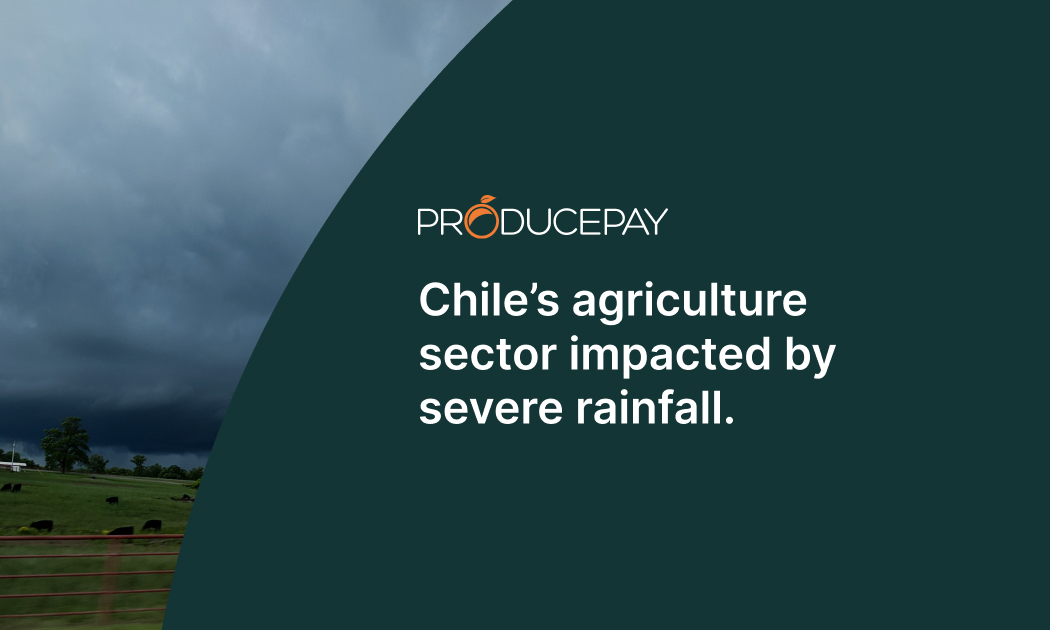
Chile’s agriculture sector impacted by severe rainfall.
Chile’s central and southern regions have sustained significant damage to both crop areas and irrigation infrastructure due to severe storms – the most intense the country has experienced in 30 years.
In response to this critical situation, the Chilean Fruit Exporters Association (ASOEX) has initiated assessments to understand the full extent of the damage and is considering measures to aid affected regions, specifically Santiago, Curicó, and Linares. However, accurately assessing the damage is proving challenging as the rainfall and hail were localized to certain areas.
Cherries have borne the brunt of the impact, with estimated losses ranging from 50% to 100% in the hardest-hit regions. Fruit falling from trees has been a significant contributing factor to these losses. In regions less severely impacted, losses may range between 15% and 20%. Thankfully, areas such as Colbún and Rosario have remained unaffected.
Other crops, including avocados, carrots, and grapes, have also been impacted. However, the extent of damage to these crops remains undetermined at this time.
One significant consequence of the intense rainfall has been the rise in water levels within river basins, leading to widespread flooding in several localities. While there have been no reports of direct damage to fruit, the impact on automated irrigation systems and associated infrastructure is currently under evaluation.
Despite grappling with a prolonged 15-year drought, Chile has found little reprieve in these recent storms. The excessive volume of rainfall over a short period has hindered infiltration into the aquifers, leading instead to landslides and soil erosion.
Consequently, the Chilean Government has declared an Agricultural Emergency in Valparaíso and Biobío, the regions most affected by the storms. The Minister of Agriculture is actively working with relevant agencies to assess the damage inflicted on the agricultural sector.
In light of these challenges, ASOEX calls for a united front to tackle the issues presented by climate change and to enhance the country’s water infrastructure. Recognizing the necessity to adapt to increasingly extreme weather conditions, the association underscores the importance of concerted efforts to mitigate the adverse effects on agricultural production.
Sources: The Packer, El Mostrador, Portal Frutícola, La Tercera
